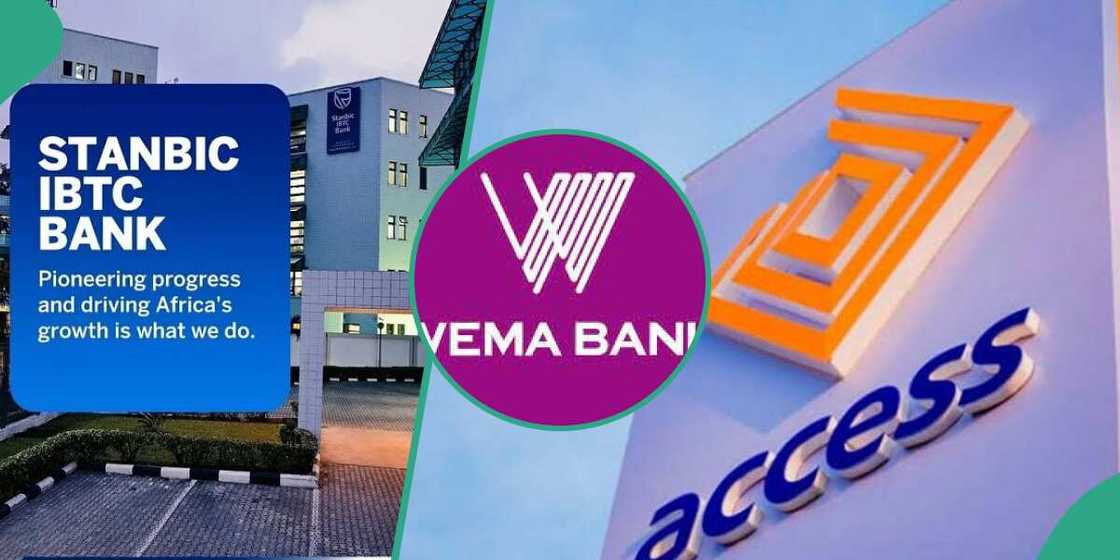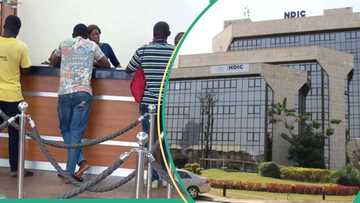CBN Investigator Probes Bank CEOs Over Anchor Borrowers Programme, Other CBN Schemes
- A new report has said the Special Investigator appointed to probe CBN will also query top bank officials
- Bank CEOs and top officials of commercial banks will be asked to account for CBN interventions kept in their vaults
- About five commercial banks reportedly house N1.7 trillion in intervention funds from CBN
Bank CEOs and top officials of banks in Nigeria may be investigated during the ongoing investigation into the affairs of the Central Bank of Nigeria (CBN) under Governor Godwin Emefiele.
Punch report says the CEOs would be invited to ascertain any abnormalities around the handling of intervention funds by the commercial banks.

Source: Getty Images
CBN to be asked to retract its financial report
According to the report, the apex bank may be asked to withdraw its recently published financial statements.
PAY ATTENTION: Donate to Legit Charity on Patreon. Your support matters!

Read also
CBN appoints 3 new banks to collect fees, debunks claim eNaira threatens financial stability
The development follows the discovery of discrepancies and irregularities in the bank’s financial statements.
The apex bank issued its audited financial report for 2016 through 2022 as it was undergoing investigation by a Special Investigator appointed by President Bola Tinubu.
Tibubu appointed former CEO of the Financial Reporting Council of Nigeria, Jim Obazee, as a Special Investigator to probe the activities of CBN under Emefiele on June 28, 2023.
NNPC and other agencies are also under probe
Alongside CBN, Obazee’s team is also probing the Nigerian National Petroleum Company Limited and other government agencies.
Sources reveal that some top bank officials would be queried as the investigation proceeds over leftovers of intervention funds in their vaults.
N1.7 trillion CBN intervention funds kept in 5 commercial banks
About N1.7 trillion in intervention funds are reportedly lodged in five commercial banks.
The CBN intervention funds from commercial banks include the Accelerated Agriculture Scheme, Anchor Borrowers’ Programme, Commercial Agriculture Credit Scheme, Healthcare Sector Intervention Facility, and Paddy Aggregation Scheme.
Other interventions include the Micro, Small and Medium Enterprises Development Fund, Real Sector Support Facility, 100 for 100 Policy, Export Facilitation Initiative, and Creative Industry Financing Initiative.
About N530 billion worth of CBN interventions are allegedly lodged in Access Bank.
The breakdown shows the fund includes N3.56 billion in the Commercial Agriculture Credit Scheme, N1.57 billion to aid the rapid rollout of agent networks across Nigeria to support the expansion of Agent Network, N58.84 billion under the salary bailout fund, and N99.04 billion outstanding balance on the excess crude account, among others.
Meanwhile, Fidelity Bank holds about N310.52 billion of the intervention funds, Zenith Bank has about N288.42 billion kept in its vaults, GTBank holds about N115.09 billion, and N25.16 billion is with UBA.
CBN to discontinue intervention schemes
The new CBN Governor, Olayemi Cardoso, said during his screening at the Senate that he will discontinue most intervention funds of the CBN and refocus the bank’s priorities.
He said:
“Much has been made of past CBN forays into development financing such that the lines between monetary policy and fiscal intervention have blurred.
“In refocusing the CBN to its core mandate, there is a need to pull the CBN back from direct development finance interventions into more limited advisory roles that support economic growth,” he said.
Tinubu gives security agencies September 18 deadline to recover N1.1trn Anchors Borrowers' Programme loan
Legit.ng reported that the Anchor Borrowers’ Loan Scheme floated by the Central Bank of Nigeria (CBN) to provide cash for enhanced agricultural production in Nigeria is in a ditch as beneficiaries refused to repay the loan on the maturity date.
Reports say that out of the N1.1 trillion disbursed by the CBN to beneficiaries, only about N546 billion has been repaid, leaving a whopping balance of N577 billion.
The beneficiaries hold up a vast amount, including commercial and microfinance banks, state governments, farmers’ associations, individuals, and other corporate organizations.
Source: Legit.ng




